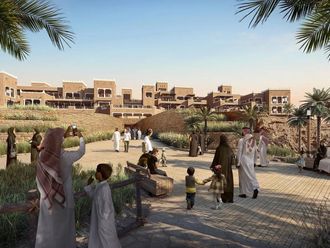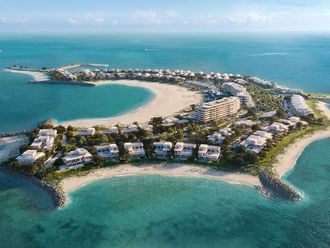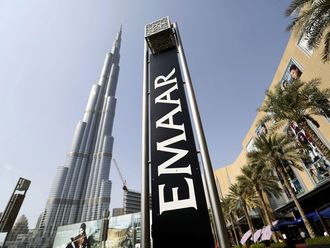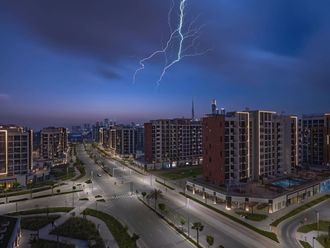Energy costs in the Gulf are bound to be impacted due to the increasing movements by governments in enforcing green policies and protecting scarce natural resources. From the removal of fuel subsidies to increasing the cost of water and electricity, the sustainability benchmark has emerged as a critical element within the wider diversification strategy.
With diversification on top of the economic agenda, one of the key strands in this approach should be a sharp focus on the green building movement in the Gulf, where $1 trillion (Dh3.67 trillion) worth of infrastructure projects are either underway or in the planning stages. Responsible for 70 per cent of energy usage and 39 per cent of carbon emissions, the buildings are a key target for energy-efficiency actions.
Considering that the commercial building stock in the Gulf is expected to increase by around 27 per cent from now until 2024, Gulf states need to push more than ever to ensure greater progress in green building.
The UAE has been among the first to act, outlining an ambitious strategy to secure a sustainable approach to energy and water usage and announcing the “Smart Cities” initiative. There has been a push to create cutting-edge urban clusters characterised by connectivity and a futuristic social infrastructure. In 2015, the UAE government pledged to create the world’s most sustainable project — the World Expo 2020 site that will host approximately 25 million visitors.
The plan is in step with policies already in practice in the European and US markets and is certainly an opportunity for the UAE, particularly Dubai, to make a global mark in green building legislation. It is no coincidence that the UAE is ranked eighth in the 2015 LEED Green Building Nations report released by the US Green Building Council (USGBC).
Another development reinforcing the green agenda is the Al Safat building rating system in Dubai. This is aimed to foster high-performance buildings by strengthening the planning, design, delivery phases.
For the facilities management market, the legislation means significant growth as well as challenges. The need to raise the bar on FM practices can translate into millions of dollars in cost-savings over the life of a building; ranging from lower energy bills to efficient waste management systems and better service standards. Longer-term returns include the protection of building assets and compliance with the requirements for each level of rating — a task that would otherwise require significant investment.
Innovative day-to-day FM operations to ensure resource utilisation and efficient energy consumption enable greater efficiency. Inputs from FM operators will also result in increasing the longevity of buildings due to the implementation of corrective measures. FM practices need to move from routine preventive plan maintenance to a predictive maintenance regime, thereby embedding the sustainability goals.
Although the UAE has made strides in commercial green buildings, there is a consensus that the Gulf states need to enforce more green building legislation for the wider economic good. A starting point is to look at progressive legislations that have worked well for mature economies. These economies have seen a surge in green buildings due to the costly environmental toll of traditional construction and legislative pressure to curb greenhouse gases.
Green buildings in certain markets attract a rental premium, so a move in this direction has a two-fold advantage. It makes real estate in the Gulf a more attractive asset and also gives a boost to green building — something that is still a fledgling industry, but one that the Gulf could carve a niche in and then export its expertise to other developing economies in the region.
Furthermore, considering that much of the UAE’s USP is its ability to act as a launch pad for business in Africa and wider Asia, green buildings could be another string to its bow. It is worth noting that the Gulf states are investing significant sums in R&D on renewable energies.
In this regard, if green building becomes part of the economic agenda, the states have a huge potential to utilise that funding to gain an advantage in a niche field over Europe and the US. This will contribute in its push to become a knowledge-based regional economy.
It is impossible to overstate how critical green buildings will be in achieving a sustainable economy. For the Gulf, the green building movement can be at the forefront of that change.
— The writer is the Group CEO of EFS Facilities Services Group.












